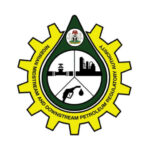The Nigerian Midstream and Downstream Petroleum Regulatory Authority (NMDPRA) yesterday insisted that there were no dirty fuels, especially diesel being imported into the country.
According to the authority, all petroleum imports meet current specifications.
The Executive Director, Distribution Systems, Storage and Retailing Infrastructure of NMDPRA, Ogbugo Ukoha, spoke after a meeting with the oil marketers and local refineries operators in Abuja.
His remark was against the backdrop of claims by the management of the Dangote Refinery last Sunday, accusing the regulator of allowing the importation of what it described as ‘dirty fuels’, despite the fact that the local refinery has better quality diesel.
- Death toll from Kano’s mosque attack rises to 23
- Senate convenes emergency sitting today over supplementary budget
The Vice President, Oil and Gas, at Dangote Industries Limited (DIL), Devakumar Edwin, stated that the NMDPRA had been granting import licences ‘indiscriminately’ to oil marketers to keep bringing in the products, including diesel and aviation fuel.
But the NMDPRA said it has always ensured that only quality petroleum products are supplied and consumed in Nigeria.
At the meeting were the Executive Vice President, Downstream of the Nigerian National Petroleum Company Limited (NNPC), Dapo Segun; the Group Managing Director of Rain Oil Limited, Dr. Gabriel Ogbechie and Group Chief Commercial Officer, Dangote Group, Rabiu Umar.
Ukoha said, “There is no dirty fuel that we would encourage to come into Nigeria. And there is no dirty fuel being brought in.
“There is no dirty fuel that we would encourage to come into Nigeria and I have given you the statistics for June. What we have on the average from imports have continued to go down from 200 ppm on the average and now we have it far below the 50 ppm that is provided under the law.
“And then with the refineries, there is no need to enforce that until the end of this year. But they themselves are already taking steps to see that that is also guaranteed.”
According to him, the Economic Community of West African States (ECOWAS) Heads of State in 2020 endorsed a declaration adopting the Afri-5 fuel roadmap that requires that certain products have a minimum 50 ppm.
The declaration, he explained, encouraged almost immediate enforcement against imports to comply with the standard, but deferred enforcement for local refineries up to December 31, 2024.
He said, “So as the Authority, what have we done since we came into being? We started by engendering compliance. We saw a downward trend up to December 2023. In December and in January of this year, we noticed a spike in the sulphur contents of products being imported. And we again now began strong enforcement from February 1.
“I am happy to tell Nigerians that up until as we speak in June, the average sulphur content in every Automotive Gas Oil (AGO) or diesel that is brought into Nigeria, the average is far below what the 50 ppm provision is in the law.
“With the local refineries, remember that declaration deferred it and so they continue to produce at a higher level. But we are not very anxious about that because even the new refineries that are coming in have within their design of the plant, desulphurisation units that will see in the nearest future that sulphur going down as low as 10 ppm,” he stressed.

 Join Daily Trust WhatsApp Community For Quick Access To News and Happenings Around You.
Join Daily Trust WhatsApp Community For Quick Access To News and Happenings Around You.


